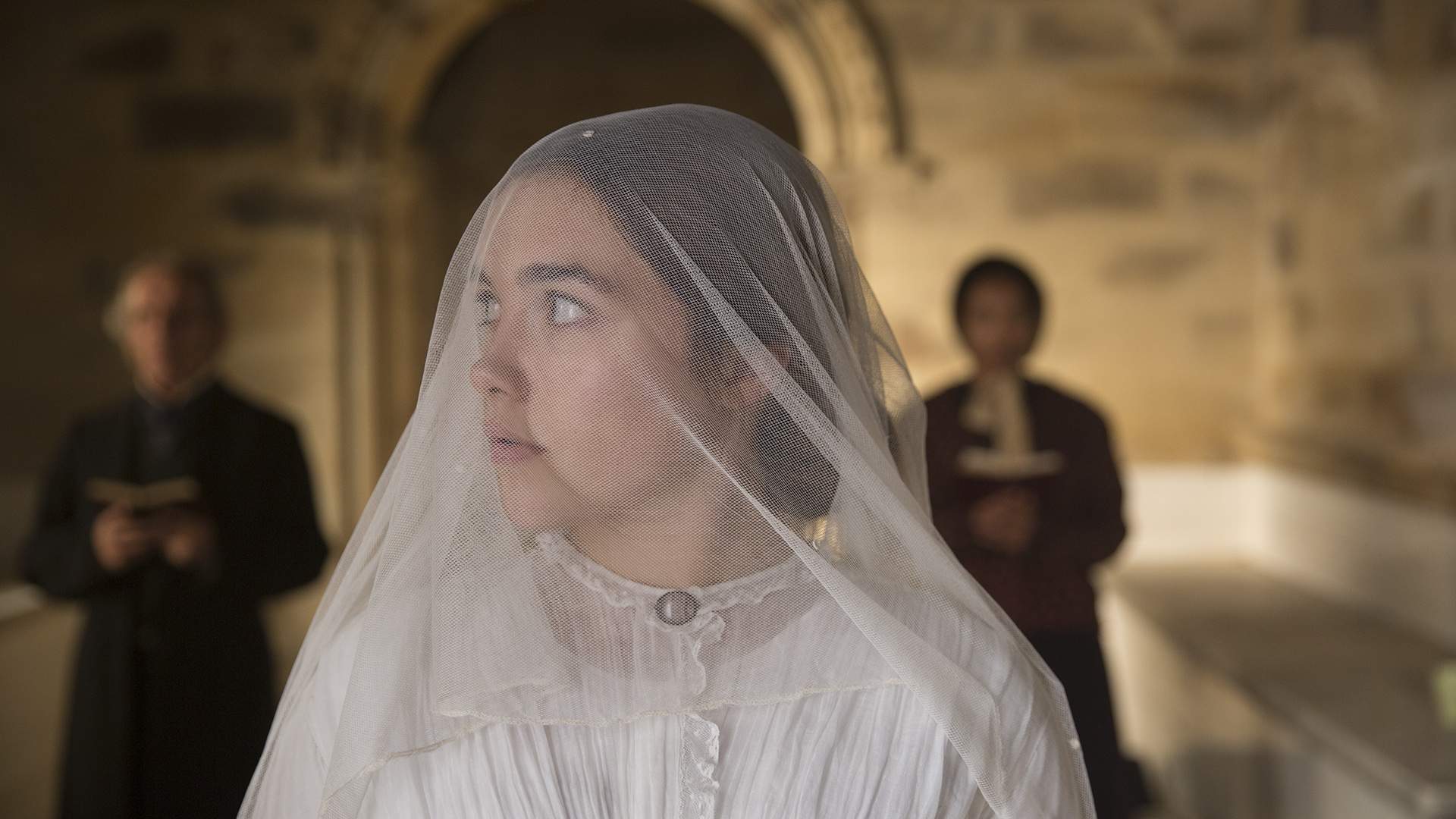Lady Macbeth
An unnerving period drama bolstered by a phenomenal lead performance.
Overview
First things first: Lady Macbeth isn't about William Shakespeare's famous character. It does, however, bring some of the Bard's best-known words to mind. "A rose by any other name would smell as sweet," he waxed lyrical in Romeo and Juliet. It's a statement that rings true here, in a film about a woman every bit as calculating, ambitious, disarming and deadly as her notorious namesake.
In adapting Nikolai Leskov's 1865 novella Lady Macbeth of the Mtsensk District, first-time feature director William Oldroyd delivers a stunning character study, an unnerving portrait of the female experience in the 19th century, and a tense psychodrama. With playwright turned screenwriter Alice Birch moving the action from the book's Russian setting to Northern England, Lady Macbeth explores the married woes of young Katherine (Florence Pugh), who is wed to the unkindly but wealthy Alexander (Paul Hilton), confined within his family's rural estate and treated like property. As her overbearing father-in-law Boris (Christopher Fairbank) explains, she has been bought and paid for; accordingly, tending to her husband's needs should now be the only reason for Katherine's existence.
Exploring the dismal way English women were treated just 150 years ago drives much of the film's first act, as it touches on not only gender but also race and class courtesy of Katherine's black housemaid Anna (Naomi Ackie). Showing how Katherine plans to break free from her restrictive regime underscores everything that follows. When an affair with one of Alexander's handsome groomsmen, Sebastian (Cosmo Jarvis), gives her a glimpse of a different life, she's reluctant to return to the drudgery that comprises her version of normality. In fact, she's reluctant enough to scheme, flout convention, and generally do whatever it takes to regain her independence. If you're familiar with Macbeth, you'll have an idea of the kinds of plots she conjures up. If you're not, let's just say that getting caught in Katherine's way isn't recommended.
In other hands, Lady Macbeth might've been more of a bodice-ripper. Constraining undergarments are indeed torn open and tossed aside, a sexual awakening takes place, and passions refuse to be contained. And yet it's the intensity of Katherine's feelings, not only for Sebastian but also for control over her life, that Oldroyd and Birch thrust to the fore. The film is austerely shot and composed; Australian cinematographer Ari Wegner (The Kettering Incident) keeps the visuals largely still, gloomily lit and posed from a distance, allowing the underlying emotions to bubble up against bleak images and a dour atmosphere.
Of course, the movie's stylistic restraint serves another purpose. When such a potent figure stalks through almost every frame — as brought to life with such a stunning central performance — dialling back everything around her is an astute choice. And what a force to be reckoned with Pugh turns out to be, so assured that it's hard to believe that Lady Macbeth is only her second big screen role (she previously appeared in The Falling). Then again, perhaps it's apt: this is a tale of a young woman defying expectation to make a bold statement, after all. Either way, no one will forget her in a hurry — the actress, or the character she plays.





